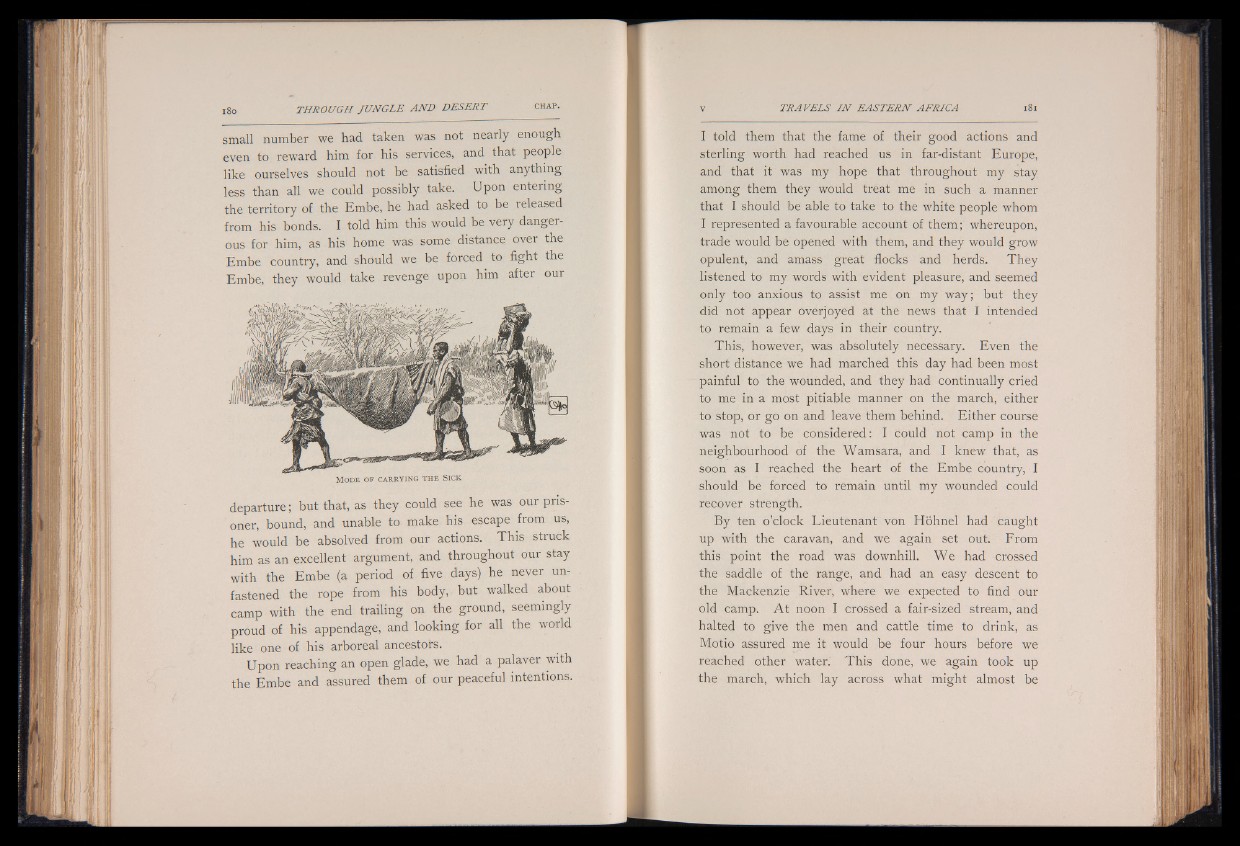
small number we had taken was not nearly enough
even to reward him for his services, and that people
like ourselves should not be satisfied with anything
less than all we could possibly take. Upon entering
the territory of the Embe, he had asked to be released
from his bonds. I told him this would be very dangerous
for him, as his home was some distance over the
Embe country, and should we be forced to fight the
Embe, they would take revenge upon him after our
M o d e o f c a r r y i n g t h e S i c k
departure; but that, as they could see he was our prisoner,
bound, and unable to make his escape from us,
he would be absolved from our actions. This struck
him as an excellent argument, and throughout our stay
with the Embe (a period of five days) he never unfastened
the rope from his body, but walked about
camp with the end trailing on the ground, seemingly
proud of his appendage, and looking for all the world
like one of his arboreal ancestofs.
Upon reaching an open glade, we had a palaver with
the Embe and assured them of our peaceful intentions.
I told them that the fame of their good actions and
sterling worth had reached us in far-distant Europe,
and that it was my hope that throughout my stay
among them they would treat me in such a manner
that I should be able to take to the white people whom
I represented a favourable account of them; whereupon,
trade would be opened with them, and they would grow
opulent, and amass great flocks and herds. They
listened to my words with evident pleasure, and seemed
only too anxious to assist me on my way; but they
did not appear overjoyed at the news that I intended
to remain a few days in their country.
This, however, was absolutely necessary. Even the
short distance we had marched this day had been most
painful to the wounded, and they had continually cried
to me in a most pitiable manner on the march, either
to stop, or go on and leave them behind. Either course
was not to be considered: I could not camp in the
neighbourhood of the Wamsara, and I knew that, as
soon as I reached the heart of the Embe country, I
should be forced to remain until my wounded could
recover strength.
By ten o’clock Lieutenant von Hohnel had caught
up with the caravan, and we again set out. From
this point the road was downhill. We had crossed
the saddle of the range, and had an easy descent to
the Mackenzie River, where we expected to find our
old camp. A t noon I crossed a fair-sized stream, and
halted to give the men and cattle time to drink, as
Motio assured me it would be four hours before we
reached other water. This done, we again took up
the march, which lay across what might almost be